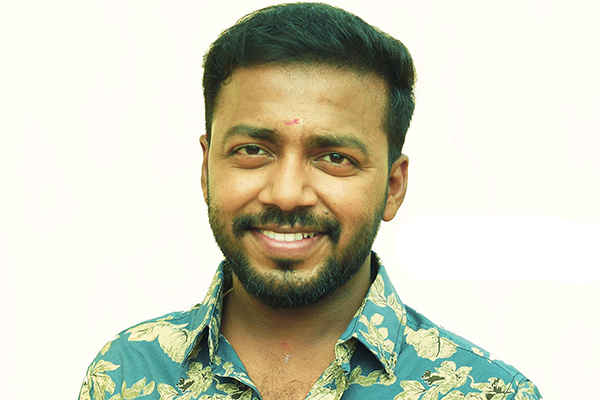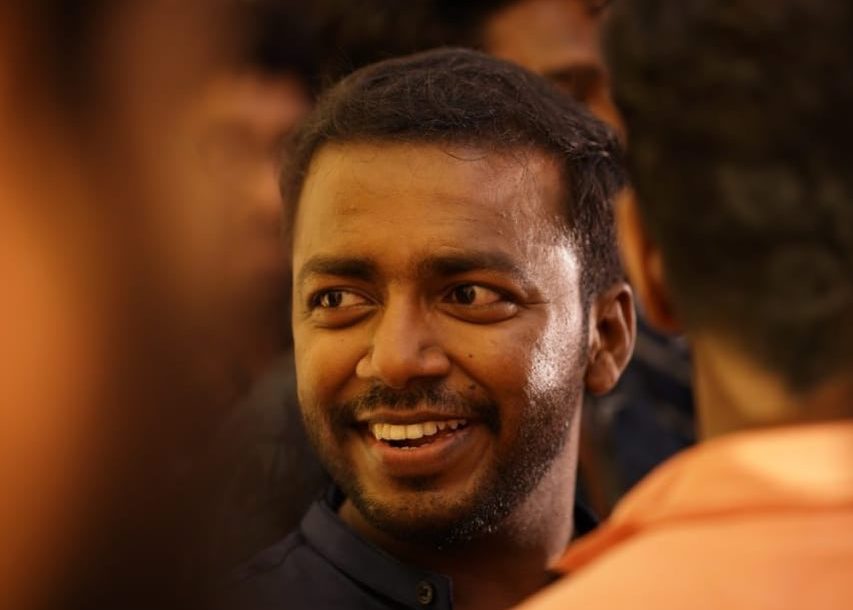The Siddique-Lal influence in Vishnu Unnikrishnan and Bibin George’s scripts are obvious and it’s something the audience seem to acknowledge and love as well. It’s clean, inoffensive, situational humour that has so far not gone wrong (Amar Akbar Anthony, Kattappanayile Rithwik Roshan). Their next (Oru Yamandan Premakadha, releasing this Thursday) is already creating enough buzz for two reasons: a) It stars Dulquer Salmaan who will be seen in a Malayalam film after a year, and b) the colourful mass entertainer romantic comedy is a terrain totally foreign to the actor and people are keen to see whether he will get it right. More from Vishnu Unnikrishnan who considers himself a full-time actor and part-time scriptwriter.

Was it planned with Dulquer Salmaan in mind?
We initially planned two films for BC Noufal that didn’t work out. Then we decided we should do something big with Dulquer Salmaan for him, though he laughed it off. And coincidentally, Anto Joseph connected us with DQ and things just fell in place.
Read More
- Academy changes rules for 2025 Oscars ceremony
- Oman-raised Carrisaa Bopanna crowned Miss Teen Universe India 2024
- First ever Hindi radio broadcast starts in Kuwait
- The Sound of Art: This former ISM student is making waves in Indian cinema
- Varshangalku Shesham: A refreshing take on friendship, dreams, nepotism and the magic of cinema
But considering how this is a milieu he has never attempted before, how did you think this will work for him?
We had written AmarAkbarAntonykeeping both of us (Bibin and himself) in mind and finally it was done by Prithviraj, Indrajith and Jayasurya. There was enough humour in it which we wouldn’t have probably written if we had them in mind. But then we saw a Prithvi we have never seen before in AAA. That gave us the courage to experiment the same with DQ. And he really stunned us.
But he was skeptical, I heard…
He was and wasn’t sure whether he could pull it off. He had given suggestions, we incorporated them and went back to him. But DQ was still undecided and suggested showing it to his friends as this was a very local theme. Since he was not familiar with the milieu he wasn’t sure he would be able to take in the nuances of such a character. That’s when Anto suggested Mammootty—he liked it and we also added his corrections.

How was he on the sets?
DQ put his trust in us as he knew we have been carrying it in our heads for a long time. Honestly, during the shoot, we were worried about his cooperation but to our surprise, he would constantly turn to us for help and suggestions. “Am I getting it right,” was his main question.

What’s your writing process with Bibin?
We discuss everything and when we come to a point where we agree, then we write. We have disagreements of course. The first draft is always shown to a group of childhood friends and we make corrections accordingly. We have the same wavelength and thought process. Be it politics or religion. We mostly find humour around us, from our daily lives.
Considering how trolls and memes are an undeniable part of our lives, do you make a conscious effort to keep them in mind while writing?
Yes, but then they would often take something we hardly expected. ‘Pangali’ and ‘Saho’ were little bits that worked and even some of the unrehearsed dialogues worked (Like “ayyodaridryam”). In fact, Prithviraj rather enjoyed the self-trolls on him we wrote in AAA.
What’s the biggest challenge in writing humour in this age?
Earlier, a film’s humour was recalled only when we watch that film again or probably when we share it with friends. But now that same humour is relived and rewritten through trolls and memes. It can be in the context of politics or a social issue. So, the success rate of humour isn’t simply restricted to just in how it works in the film, it has to equally go beyond the screens and work as much on social media through trolls and memes. And the competition is incredible. Today only situational comedy works. Verbal humour has no guarantee and it is as important to keep the humour updated. It tends to get stale rather too fast.
Soubin Shahir and Salim Kumar. How did they work for you?
Just their inclusion was a big deal for us. Soubin improvises during shooting and even during dubbing. Same goes for Salim Kumar who is the king of spontaneity. Our writing is such that we say the dialogues out loud, and since we also have a background of mimicry, we even intone it in the same metre as these actors. That’s quite effective mostly. But since we keep editing during scripting there isn’t usually much space for improvisations.
I see an obvious Siddique-Lal influence.
That goes without saying. We love all their films. Even Priyadarshan films. Ideally we want our cinema to be a blend of all their films.
So, comedy will be a constant? It’s easier and something we are good at and also that’s what we love to watch. But we would like to think that our films are more than just comedy films.







